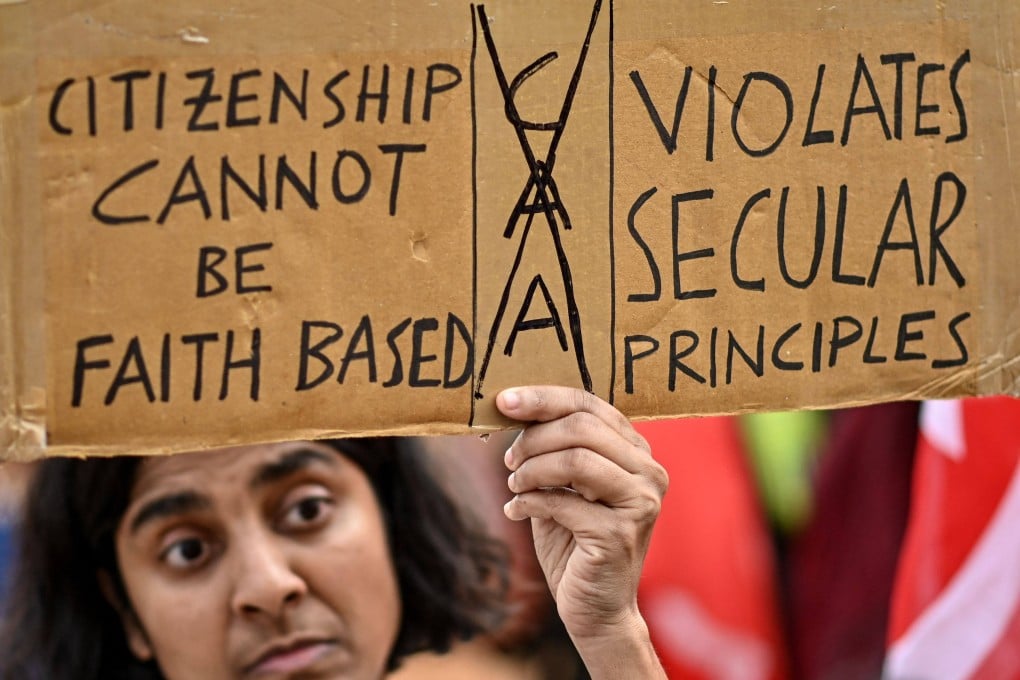India’s citizenship law slammed as anti-Muslim, Modi’s election ploy to woo Hindu voters
- New Delhi announces the long-delayed implementation of the Citizenship Amendment Act, which sparked violent protests in 2019 when it was unveiled
- The law will further discriminate against Indian Muslims and its implementation is timed to maximise Modi’s election gains, critics say

Mohammad Ishaq was shopping in New Delhi ahead of Ramadan when he read news of India’s implementation of a citizenship law that critics have slammed as discriminatory against the country’s Muslims and further proof of Prime Minister Narendra Modi’s pro-Hindu agenda.
“It was meant to happen but the announcement still hurt,” said the 35-year-old Indian Muslim who took part in protests against the passing of the Citizenship (Amendment) Act (CAA) in 2019.
“It brought back ugly memories of how we were treated in 2019 when the government first tried pushing through this discriminatory law. My friends were jailed for years just for protesting it.”

A replacement of the 1955 Citizenship Act, the CAA expedites citizenship for what Delhi says are refugees escaping religious persecution such as Hindus, Sikhs, Buddhists and Christians in Afghanistan, Bangladesh and Pakistan. The government, however, has made no mention of Muslim refugees in implementing the law.
These refugees can acquire Indian citizenship within five years even if they enter the country without papers.
India’s Home Minister Amit Shah on March 11 announced details about the implementation of the CAA. Shah, a close Modi aide, said on X the CAA would “enable minorities persecuted on religious grounds in neighbouring countries to acquire Indian citizenship”.
Critics have slammed the delayed implementation of the law by four years, saying it was deliberately timed just before the election. On Saturday, India’s election authority said polls would begin in phases on April 19.
